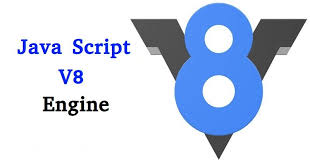V8 and Asynchronous I/O: The Essential Role of libuv
 SANKALP HARITASH
SANKALP HARITASH
Do really V8 needs libuv for handling Asynchronous Operations.
Understanding V8 and Its Role
V8 is Google's open-source JavaScript engine, written in C++, which is responsible for executing JavaScript code. It is embedded in several Google products, including Google Chrome and Node.js. V8's primary function is to compile and execute JavaScript code efficiently. It optimizes execution through techniques like just-in-time (JIT) compilation and various optimizations, such as inline caching and hidden classes. However, V8 does not include built-in mechanisms for handling I/O operations asynchronously.
The Role of libuv in Node.js
In Node.js, the asynchronous behavior and non-blocking I/O model are achieved through libuv. While V8 handles JavaScript execution, libuv handles the system-level I/O operations, such as reading and writing to the filesystem, networking (HTTP, TCP, UDP), handling timers, and interacting with child processes. libuv provides:
Event Loop: libuv implements the event loop in Node.js, which is the core of its asynchronous programming model. This loop allows Node.js to manage multiple tasks without blocking the main thread.
Thread Pool: For certain operations that are inherently blocking (e.g., file system operations, DNS lookups), libuv uses a thread pool to offload these tasks. Once the task is complete, libuv signals back to the event loop to handle the callback.
Cross-platform Abstraction: libuv abstracts away the complexities of different operating system APIs, providing a consistent interface for asynchronous operations across platforms like Windows, Linux, and macOS.
Why V8 Needs libuv
Lack of I/O Abstractions: V8 is designed to be a high-performance JavaScript engine. Its focus is on executing JavaScript code efficiently but not on managing I/O. As such, it does not have the built-in capabilities to handle file I/O, network communication, or manage an event loop required for asynchronous operations.
Single-threaded Nature: JavaScript, as executed by V8, is single-threaded. For JavaScript to interact with I/O efficiently without blocking the main thread, there needs to be a mechanism to offload these tasks. libuv provides this capability by using an event-driven, non-blocking I/O model.
How They Work Together in Node.js
V8 handles the execution of JavaScript code. When a script makes an asynchronous I/O call, such as reading a file, it interacts with the Node.js APIs, which are backed by libuv.
libuv handles the actual I/O operations. For example, if a file read is requested, libuv will interact with the OS's filesystem API to read the file. Meanwhile, V8 can continue executing other JavaScript code.
Once libuv completes the I/O operation, it places a callback in the event loop's queue. V8 will then execute this callback, continuing the program's execution.
Conclusion
V8 alone does not handle asynchronous I/O operations. It requires the support of libuv to provide the necessary event loop, thread pool, and I/O handling capabilities. This partnership is fundamental to Node.js's architecture, enabling it to perform non-blocking, asynchronous operations, making it suitable for scalable network applications. The combination of V8 for fast JavaScript execution and libuv for efficient I/O handling allows Node.js to deliver its powerful asynchronous programming model.
Subscribe to my newsletter
Read articles from SANKALP HARITASH directly inside your inbox. Subscribe to the newsletter, and don't miss out.
Written by

SANKALP HARITASH
SANKALP HARITASH
Hey 👋🏻, I am , a Software Engineer from India. I am interested in, write about, and develop (open source) software solutions for and with JavaScript, ReactJs. 📬 Get in touch Twitter: https://x.com/SankalpHaritash Blog: https://sankalp-haritash.hashnode.dev/ LinkedIn: https://www.linkedin.com/in/sankalp-haritash/ GitHub: https://github.com/SankalpHaritash21 📧 Sign up for my newsletter: https://sankalp-haritash.hashnode.dev/newsletter